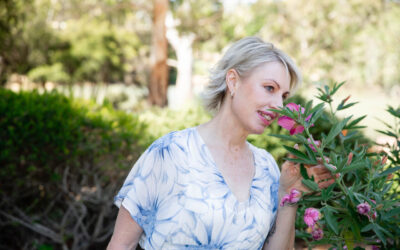Blog
NDIS – Accessing Holistic Therapy.
As you can see, the NDIS program is not designed to solely provide traditional medical treatment to participants. It is a holistic program, providing tailored support, where individuals have a fair amount of autonomy in choosing the services and supports that are right for THEM. You might be surprised to learn that there are a wide variety of alternative therapies available under the NDIS program including Neuro Linguistic Programming (NLP), Hypnosis, Time Line Therapy®, Access Bars® and Life Coaching.
Masking your anxiety.
I remove anxiety using concentrated Time Line Therapy® and hypnotherapy sessions to create shifts in both the conscious and unconscious mind, by releasing the emotions that lead to and create anxiety.
‘Screening’ your own wellbeing.
We keep hearing the narrative that technology (gaming and social media in particular) is ‘ruining lives’.
Can this be true, when so much of our lives is now intrinsically linked to technology?
Studies on the effects of technology on the brain, mood and mental health vary wildly – meaning it’s hard to know for certain who to listen to.
Lock down life hacks.
As we deal with the currently unfolding situation, it’s especially important to stay ‘grounded’. This means finding ways to prioritise your emotional and mental well being.
Reaching out to others who may be struggling – no matter how small the gesture – will not only brighten their day; it will also give you a sense of purpose and make you feel good about yourself.
Fighting the effects of trauma.
Trauma can actually create physical changes in a person’s brain, creating unhelpful ways of thinking, feeling and believing about the world and themselves.
A person with C/PTSD may develop coping mechanisms in an attempt to ‘manage’ their overwhelming emotions and negative thought patterns.
These coping mechanisms may look ‘healthy’ (e.g. using humour), or obviously concerning (e.g. addiction, accepting/dispensing abuse or even violence).
Acknowledging that there is a problem is the first step towards seeking help and dealing with the root cause.
Practicing self care takes practice.
Good self-care is essential to maintaining overall health – not just physical health, but also your mental and emotional health and wellbeing. It is also more likely to assist you in maintaining social connectivity and/or feeling connected to community.
It is important to keep tending to your mind. The mind is like a garden and it requires regular ‘upkeep’ in order to keep growing.
Putting your relationships on the ‘line’.
The ghosts of unhealthy relationships past – hurt, anger, sadness, resentment, guilt and fear – can affect your wellbeing in the present (and the future), unless you take steps to become ‘unstuck’ and clear these emotional blocks once and for all.
Your experiences, feelings and patterns from past relationships (with parents/caregivers, peers, romantic partners or others) can all shape your sense of self, who you attract into your life and how you interact in future relationships (especially as a partner and/or parent).
The ‘invisible’ impact of pain.
Many painful conditions can be resolved through resting the affected area, medication, physical therapy/massage, lifestyle changes (e.g. avoiding certain foods), exercise or surgery; without recurrence.
As such, it can also have a massive impact on mental health.
Body and soul.
Body image issues do not only affect a person’s self-esteem and confidence, but also their physical and mental health and wellbeing.
At worst, body image issues can lead to eating disorders and even fatality.
They often co-exist with mental illnesses such as anxiety and/or depression.
Coupledom not couple ‘doom’.
It’s normal for any couple to go through the ups and downs that come with the territory of coupledom.
However, underlying relationship issues that might be resolved under normal circumstances may be exacerbated during COVID.
Try to minimise any stress and anxiety by engaging in activities, self-care practices and support networks that support your emotional wellbeing, both as an individual and as a couple.
Let's Start
Ready to take the next step?
Book your FREE strategy call with Marg.










